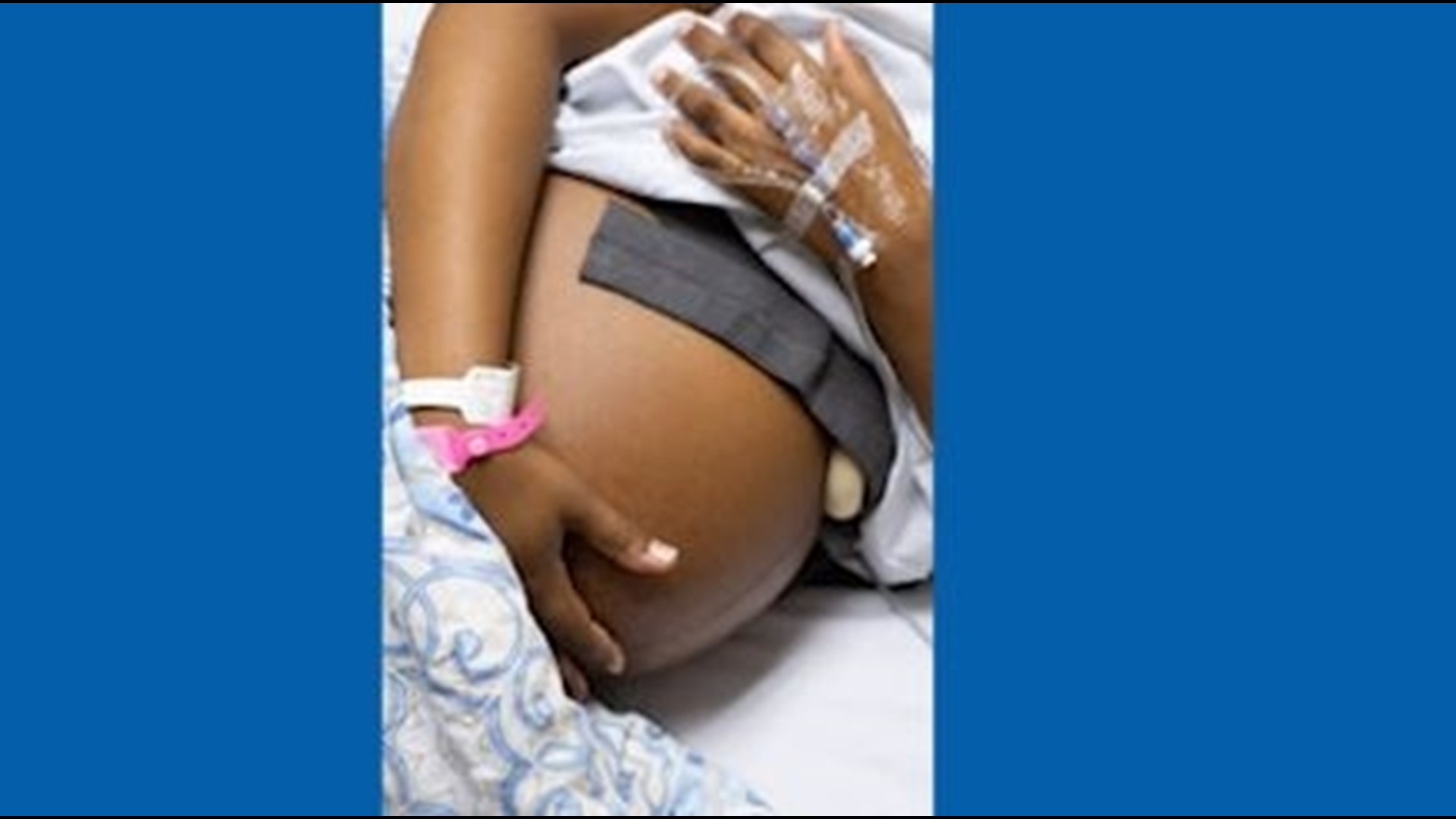HOUSTON — This week is Black Maternal Health Week, which is focused on making sure minority women have low-risk pregnancies and healthy babies.
According to the Centers for Disease Control and Prevention, African American women are three times more likely to die from pregnancy-related complications than white women.
Tonjanic Hill, a 33-year-old Houston mother, has a history of fibroids. She said doctors told her she would never be able to have children.
"I said I'm going to do this I'm going to have children. This is not going to beat me," Hill said.
Beating the odds, she became pregnant with her first child in 2017. But 19 weeks into her pregnancy, she was rushed to the emergency room.
"I felt very like what, what just happened here," she said.
It was then she said she was diagnosed with an incompetent cervix, a condition where the cervix opens too early during pregnancy. She was informed her baby wouldn’t make it.
"You can’t be telling me that I'm losing my child," Hill said.
She said she felt failed by the medical system since she was given a late diagnosis and sent back forth to different doctors.
"I felt as if they could have done more," said Hill.
Dr. Angela Burgess is the medical director of maternal-fetal medicine at Memorial Hermann Southwest Hospital. She’s also the assistant professor and vice-chair of diversity and inclusion at the McGovern Medical School at UT health.
"We know that there can be a systematic bias that takes place,” said Burgess.
Her team is working to break the bias related to black women and childbirth.
“The identification of the issue is there. People aren’t denying. We aren’t saying this doesn’t exist. It does exist. The question comes, what are the actions to take to correct this?"'
Hill found out she was pregnant again in 2019, this time with twins. Given her prior experience, she said she sought out the care of a high-risk pregnancy specialist.
"You just want to stay up on your health history when it comes to being a black woman statistically. We lose so many babies," Hill said.
She said she received the education and care that brought her 2-year-olds Devella and Deven Denkins into the world.
Hill is now a part of the Memorial Hermann’s Perinatal Patient and Family Advisory Council, where she is mentoring mothers and being a voice for change.
"Very mind blogging to know a lot of women go through diagnosis that we don’t even know about and possibly prevent it prior to going through that loss and traumatic experience,” she said.

